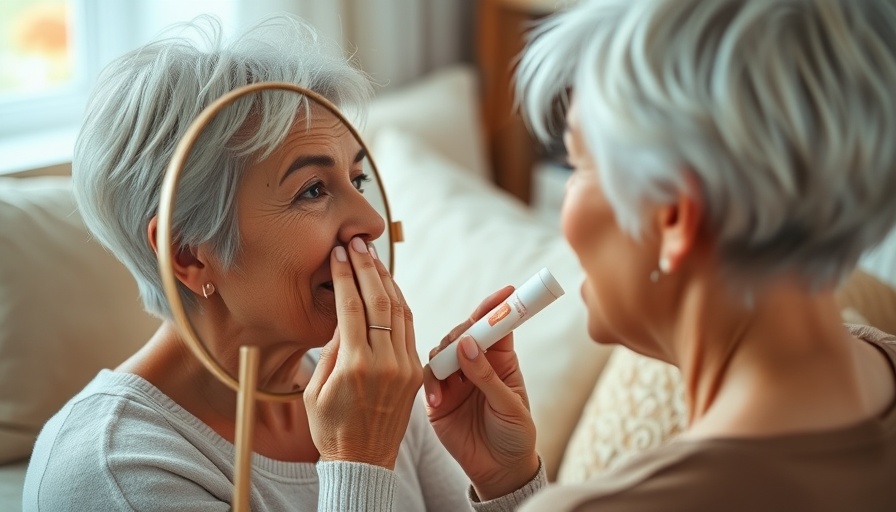
The Menopause Skin Shift: Understanding the Change
Menopause can be a transformative time for many women, not just in terms of hormone changes but also in how it affects the skin. As Dr. Doris Day, a prominent dermatologist, explains, the aging process accelerates significantly during this period, causing noticeable changes like dryness, breakouts, and thinning skin. In this article, we’ll delve into the skin changes associated with menopause and discuss actionable insights to help you maintain your skin's health during this transition.
Why Your Skin Changes During Menopause
As estrogen levels decline during menopause, the skin experiences accelerated collagen breakdown, leading to a loss of elasticity and moisture. This means women often notice their skin looking less vibrant, with an increased risk of dryness and sensitivity. Dr. Day notes that many women exclaim that their skin seems to 'fall apart' almost overnight as they enter this new phase of life. Understanding this background is crucial because it empowers women to take proactive measures to counteract these changes.
Start with Gentle, Effective Skincare
During menopause, the skin's needs might change dramatically. Rather than using harsh products, adopting a routine based on gentle formulations becomes essential. Dr. Day emphasizes starting with a mild cleanser and gradually introducing active ingredients like glycolic acid, but not daily, depending on skin sensitivity. Incorporating vitamin C can help protect the skin from environmental damage, while the application of a robust sunscreen is crucial due to increased risk of sun damage during this time.
The Role of Retinol: Use Wisely
Many women fear that they must give up retinol as they navigate menopause. However, Dr. Day reassures that it is still beneficial, but a switch to over-the-counter retinols may be wise. These alternatives provide the benefits of retinol with added hydration properties, making them easier on sensitive skin. This shift allows for continued collagen production while minimizing irritation.
Hair: It’s Not Just About Skin!
Menopause also affects hair, with many women experiencing thinning due to natural aging. Dr. Day recommends considering minoxidil as a topical treatment to boost blood flow to the scalp and support hair health. Supplementation with products like Nutrafol is also an option for women seeking to enhance hair vitality. This comprehensive approach ensures that both skin and hair receive the necessary care during menopause.
Timing Is Everything for Hormone Therapy
Dr. Day highlights the importance of starting hormone therapy early. Beginning treatments before significant collagen loss can greatly benefit the skin’s hydration and elasticity. The key insight here is that prevention is often more effective than correction. Addressing these issues sooner rather than later can lead to healthier skin throughout the aging process.
The Bigger Picture: Holistic Health
Ultimately, skincare is not just about external products; it also reflects overall health. Well-maintained skin can positively influence internal health, creating a cycle of wellness. Engaging in a balanced diet and maintaining a healthy lifestyle can enhance skin condition, offering a holistic approach to the beauty and wellness journey during menopause.
Empowering Yourself During Transition
As women navigate this significant life change, understanding the implications for their skin is critical. Feeling empowered with knowledge allows for better decision-making regarding skincare and overall wellness. Embrace this transitional phase with confidence! It’s about enhancing your beauty and embracing the changes that come with age.
To further enhance your experience and knowledge about menopause and skin health, consider seeking a consultation with a dermatologist who specializes in hormonal changes and skincare. They can provide personalized recommendations tailored to your skin type, and journey. Take control of your skincare journey today and celebrate the beauty of growing older!
 Add Row
Add Row  Add
Add 




Write A Comment